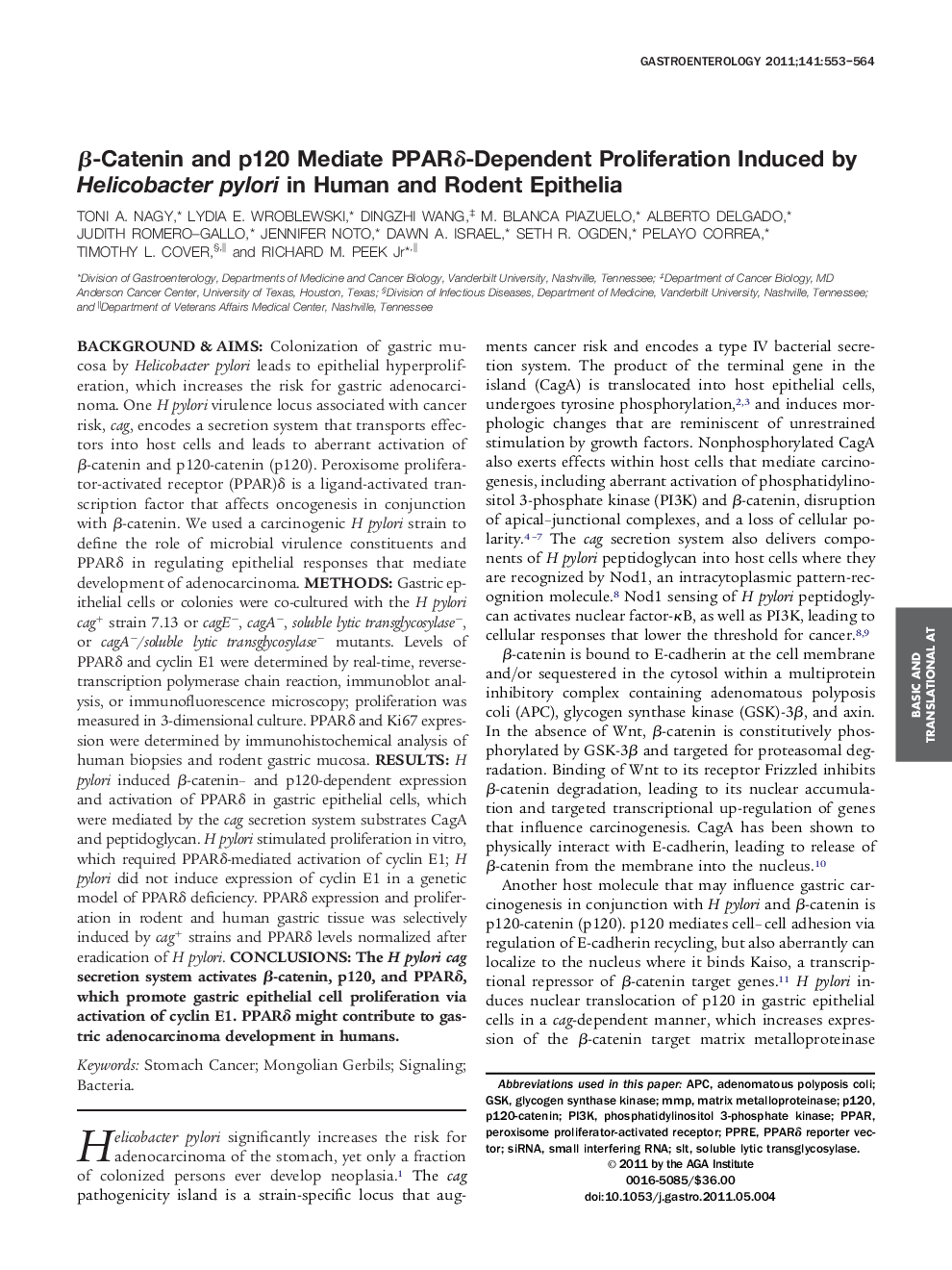| Article ID | Journal | Published Year | Pages | File Type |
|---|---|---|---|---|
| 3296455 | Gastroenterology | 2011 | 12 Pages |
Background & AimsColonization of gastric mucosa by Helicobacter pylori leads to epithelial hyperproliferation, which increases the risk for gastric adenocarcinoma. One H pylori virulence locus associated with cancer risk, cag, encodes a secretion system that transports effectors into host cells and leads to aberrant activation of β-catenin and p120-catenin (p120). Peroxisome proliferator-activated receptor (PPAR)δ is a ligand-activated transcription factor that affects oncogenesis in conjunction with β-catenin. We used a carcinogenic H pylori strain to define the role of microbial virulence constituents and PPARδ in regulating epithelial responses that mediate development of adenocarcinoma.MethodsGastric epithelial cells or colonies were co-cultured with the H pylori cag+ strain 7.13 or cagE−, cagA−, soluble lytic transglycosylase−, or cagA−/soluble lytic transglycosylase− mutants. Levels of PPARδ and cyclin E1 were determined by real-time, reverse-transcription polymerase chain reaction, immunoblot analysis, or immunofluorescence microscopy; proliferation was measured in 3-dimensional culture. PPARδ and Ki67 expression were determined by immunohistochemical analysis of human biopsies and rodent gastric mucosa.ResultsH pylori induced β-catenin– and p120-dependent expression and activation of PPARδ in gastric epithelial cells, which were mediated by the cag secretion system substrates CagA and peptidoglycan. H pylori stimulated proliferation in vitro, which required PPARδ-mediated activation of cyclin E1; H pylori did not induce expression of cyclin E1 in a genetic model of PPARδ deficiency. PPARδ expression and proliferation in rodent and human gastric tissue was selectively induced by cag+ strains and PPARδ levels normalized after eradication of H pylori.ConclusionsThe H pylori cag secretion system activates β-catenin, p120, and PPARδ, which promote gastric epithelial cell proliferation via activation of cyclin E1. PPARδ might contribute to gastric adenocarcinoma development in humans.
